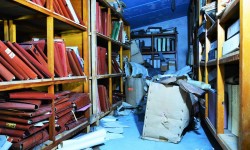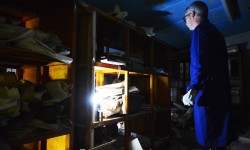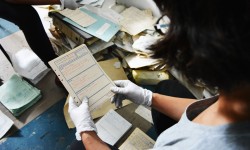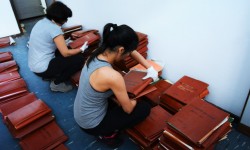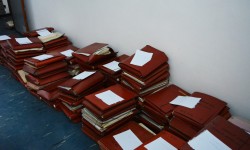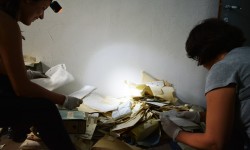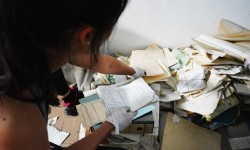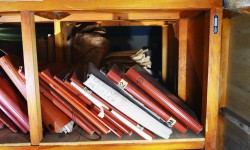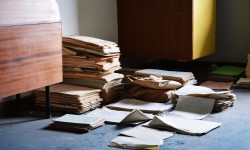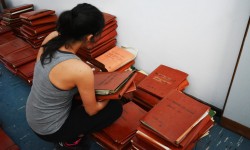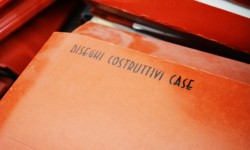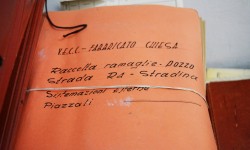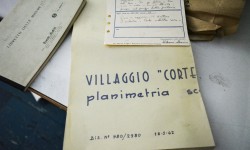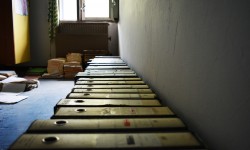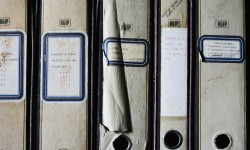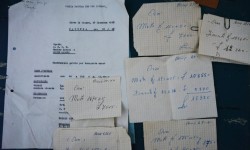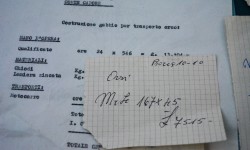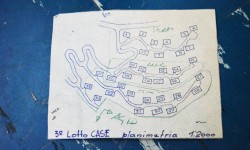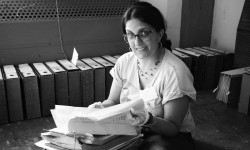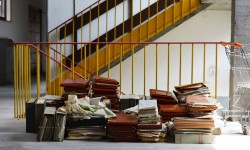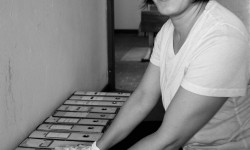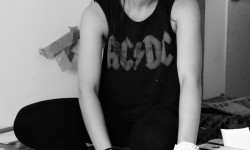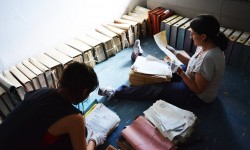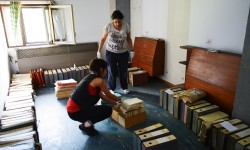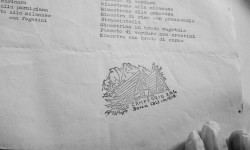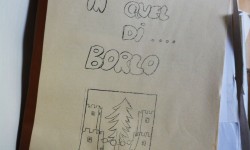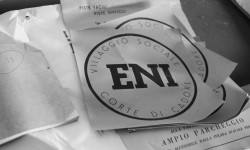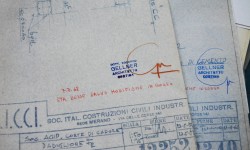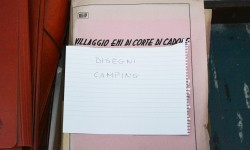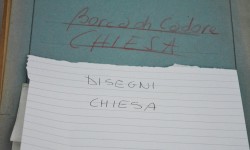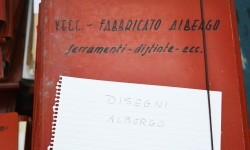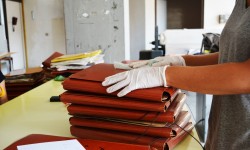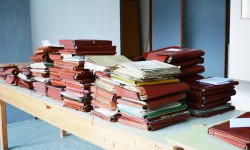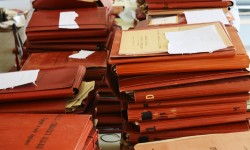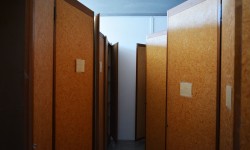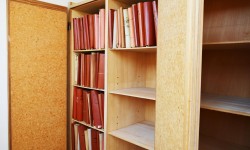In 2015, during our daily explorations of the enormous deposit that is the former Eni Village of Borca, and its Colonia (Eng.: summer camp building) in particular, we came across a huge “lode” of documentary materials concerning the birth and construction of the Village itself.
These documents, left for many years in a most definitely inappropriate, almost noxious location, were found in less than ideal conditions. Many of them were recovered in dreadful conditions, chaos governing the pile, the necessity for some tidying up clear from the very beginning.
Among them were: drawings and original heliographic copies by Edoardo Gellner, concerning several of the main structures of the Village (the Church, the Cottages, the Colonia, the Camping Ground’s Permanent Tents, the Boite Hotel, building details, etc.); behavioural profiles of the ENI children who, for decades, came to the Colonia in the mountains for their summer holidays; documents concerning the building and administration of the Village.
A buried, forgotten treasure, given no value, left to rot.
During the following survey, Francesco Antoniol, an archivist, stumbled upon the fertile entropic mass.
And, immediately, an idea came to light: we would involve a group of archivists, and organize a Summer-school in Borca, a class in which to start the tidying-up process, as well as the systematic archiviation and conservation of the recovered materials.
A few months later, the Archim – Archivists in Movement association, came to the Village, where, from the 18th to the 24th of July, this workshop, which involved about a dozen people, coming from all over Italy, was carried out inside the scope of the Residency program.
The archivists were housed in the permanent tents of the camping ground, and they have lived inside the Village, working non-stop for more than a week in the Colonia, and rebuilding an archive of over seventy linear meters, made up of hundreds of paperwork bundles and thousands of indexed documents. Some of them came back again, after, to keep up this precious work, which continues to move forward.
The documents, put back in order and systematically archived, can already be consulted. Architects, students, archivists, researchers, and historians interested in the study and deeper analysis of aspects linked to the history of the Village, are already making use of this precious capital. During the next few weeks, the complete list of the available documentation will be put on-line, thanks to a database created together with Regesta.exe, an open source, xDams, easy to consult multimedia description platform.
The materials can already be viewed in situ upon request (for more info please send your questions to: info@progettoborca.net).
During the Open-studio of Saturday December the 10th, 2016, the Progettoborca Archive was officially presented to the public. A a post concerning the event will be uploaded soon.
Foto: Lidia Giusto

